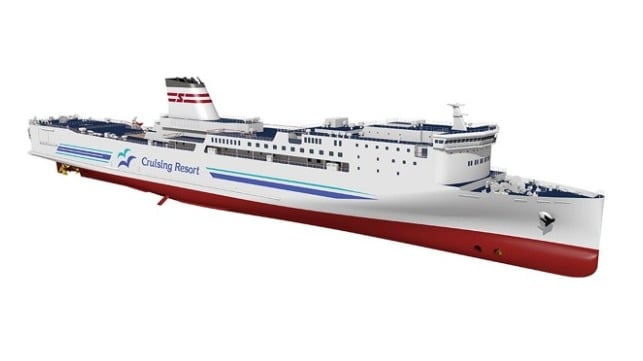Project Funded to Develop and Verify Unmanned Ship Navigation System

A new project is getting underway in Japan to develop and demonstrate the technology and systems require to enable unmanned ship navigation. As part of the effort, the prototype system will also undergo verification via demonstration testing in Japanese coastal waters.
Funded by a grant from the Joint Technological Development Programme for the Demonstration of Unmanned Ships, sponsored by The Nippon Foundation, the project will be undertaken jointly by the Mitsubishi Shipbuilding Company, a division of Mitsubishi Heavy Industries, in collaboration with Shin Nihonkai Ferry Company.
In the first phase of the project, Mitsubishi Shipbuilding will collaborate with Shin Nihonkai Ferry as well as academic institutions, IT businesses, and control system engineering firms in the design and construction of a large car ferry that integrates advanced unmanned navigation technologies. It will be the next step in the development of automation systems to assist ship navigation and cargo handling that Mitsubishi Shipbuilding has been working on since the 1990s.
Once the development phase has been completed, the prototype unmanned navigation system will be installed on a large high-speed car ferry ordered by Shin Nihonkai Ferry. The ferry will be built at the Tategami Main Plant of MHI's Nagasaki Shipyard & Machinery Works.
Demonstration testing of the new system will be performed for approximately one year, starting with the ship’s scheduled delivery at the end-June 2021. A crew will be on board to monitor operations and ensure safety during these testing phase, which will last through May 2022. The project’s goal, however, is to complete the verification and demonstration of a comprehensive system enabling totally unmanned navigation.
Among the systems to be integrated into the ship will be remote diagnosis technologies for large-scale equipment developed by the MHI Group. In addition, Mitsubishi Shipbuilding will also continue to expand on its current development programs to further enhance ship safety, reduce the crew's workload, and trim operating costs.
